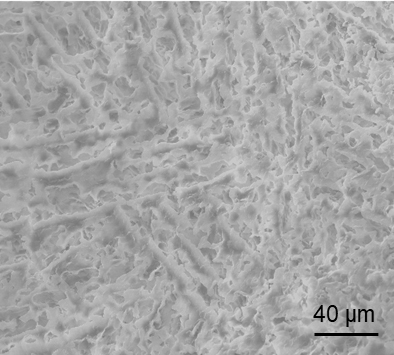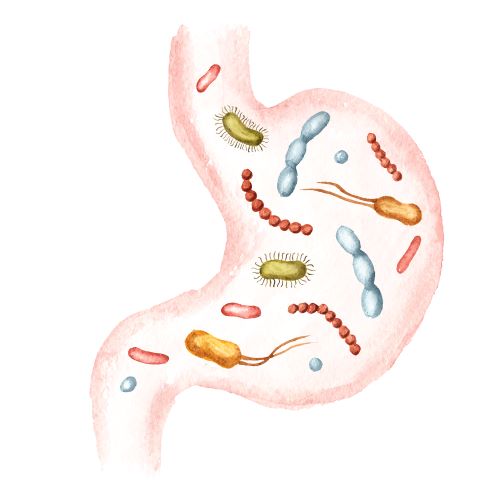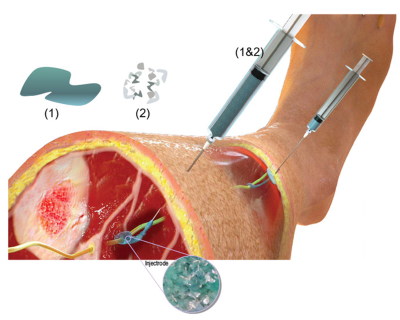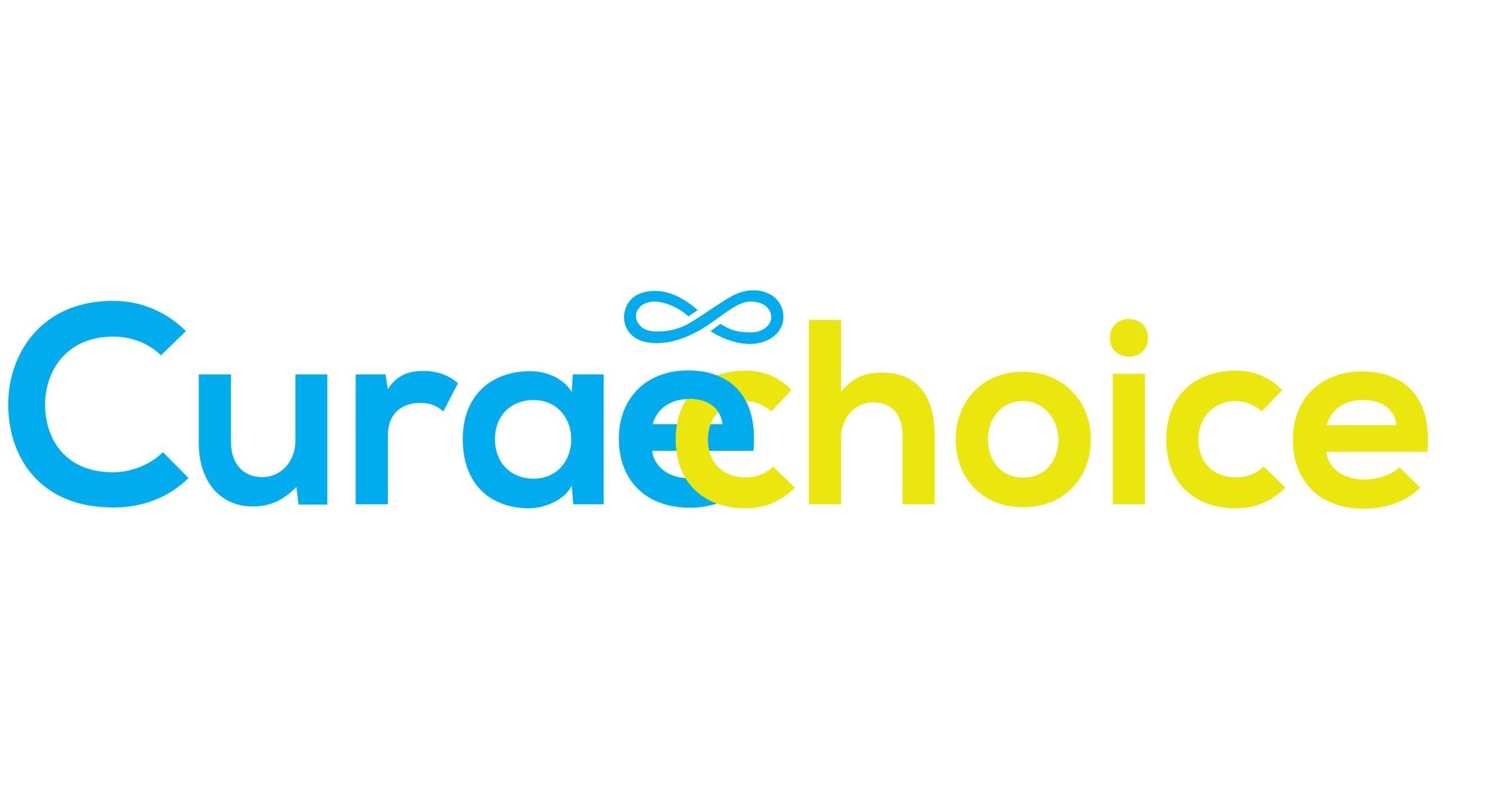The gut microbiome (the collection of bacteria, viruses, fungi, and other microorganisms that reside in our gastrointestinal tract) can affect us in a variety of ways, from our metabolism to our mood. Research also suggests that the gut microbiome may modulate the immune system, such as affecting responses to pathogens. Emerging evidence has also shown that imbalances in the gut microbiome may affect responses to certain cancer treatments.
Now, NIBIB-funded researchers are investigating whether a fiber-based gel can restore beneficial microbes to the gut to improve the effectiveness of immune checkpoint inhibitors, a type of cancer immunotherapy treatment.
“The gut microbiome is an emerging area of scientific discovery and we are beginning to understand how changes in this complex ecosystem can impact human health and disease,” said David Rampulla, Ph.D., director of NIBIB’s Division of Discovery Science & Technology. “This study is a promising example illustrating that biomaterials could be used to modulate the gut microbiome, regulating immune responses and potentially augmenting existing cancer treatments.”
Cancer immunotherapy is a type of treatment that recruits our own immune system to help recognize and attack cancer cells. The most common type of cancer immunotherapy is a treatment known as an immune checkpoint inhibitor, which blocks interactions in immune cells that would otherwise hinder their ability to kill cancer cells. Although this approach has revolutionized cancer treatments, only a minority of patients respond to this type of therapy. What’s more, research indicates that patients with imbalances in their gut microbiome may be less likely to respond to this treatment.
Many research laboratories are looking for ways to manipulate the gut microbiome to improve cancer immunotherapy, including oral ingestion of probiotics either Fecal microbiota (stool) transplant.explained James Moon, Ph.D., John G. Searle Professor of Pharmaceutical Sciences and Biomedical Engineering at the University of Michigan. His lab is pursuing an alternative approach by developing a colonic retention gel made of inulin (a widely consumed dietary fiber) that can modulate the gut microbiome to improve responses to cancer immunotherapy.
Inulin is a prebiotic, that is, a non-digestible substance that “feeds” healthy bacteria in the intestine, thus selectively stimulating beneficial microbes in the gastrointestinal tract. Inulin, which is widely available, is found in many fruits, vegetables, and herbs, and research has shown that inulin can increase the growth of favorable bacteria in the human intestine. Building on this knowledge, the researchers investigated whether inulin could improve responses to an immune checkpoint inhibitor in multiple mouse models of cancer.
in your studyrecently reported in Nature Biomedical EngineeringThe researchers found that mice with tumors that received inulin plus an immune checkpoint inhibitor reduced cancer growth and increased survival compared to mice that received the immune checkpoint inhibitor alone. The researchers also evaluated how these treatments affected the mice’s gut microbiome. Compared to the immune checkpoint inhibitor alone, the combination treatment significantly increased the levels of several types of beneficial bacteria (some by as much as more than 15-fold) that have been associated with a favorable response to this type of immunotherapy among cancer patients. Additionally, treatment with the immune checkpoint inhibitor alone actually decreased the level of one type of beneficial bacteria by almost 100 percent, but treatment with inulin was able to partially restore the bacteria.

Next, the researchers wanted to investigate whether prolonged exposure to inulin in the intestine could further amplify its effect. They developed an inulin gel, which is administered orally, but is viscous and probably coats the colon lining of mice. Compared with tumor-bearing mice treated with an immune checkpoint inhibitor and unmodified inulin, mice that were treated with an immune checkpoint inhibitor plus inulin gel markedly delayed tumor growth and increased survival.
The researchers also looked at how the combination treatment of inulin gel and the immune checkpoint inhibitor affected the immune systems of the mice. They found that this treatment improved the responses of anti-tumor T cells (white blood cells that can attack cancer cells).
“In this study, we designed a biomaterial that targets and manipulates favorable bacteria in the intestine, which we found improves cancer immunotherapy treatment in mice,” Moon said. “Our colon-retaining inulin gel may provide an approach to restoring a healthy gut microbiome in cancer patients in the future.”
Moon highlighted the preclinical nature of his work, noting that his lab plans to examine the safety and microbiome-modulating effects of its inulin gel in healthy volunteers, which could be followed by a clinical trial in cancer patients.
It is important to note that while there are many commercial dietary supplements, the US FDA does not have the authority to review the safety and effectiveness of dietary supplement products before they are marketed. Talk to your healthcare provider before making decisions about whether to take dietary supplements.
This study was funded by National Institute of Biomedical Imaging and Bioengineering (NIBIB) grant R01EB022563; grant R01AI127070 from the National Institute of Allergy and Infectious Diseases (NIAID); grants R01CA210273, U01CA210152, P30CA046592, R01CA227622, R01CA222251, and R01CA204969 from the National Cancer Institute (NCI); and grant R01DK125087 from the National Institute of Diabetes and Digestive and Kidney Diseases (NIDDK).
Study reference: Han, K., Nam, J., Xu, J. et al. Generation of systemic antitumor immunity through in situ modulation of the intestinal microbiome using an orally administered inulin gel. Nat Biomed Eng (2021). https://doi.org/10.1038/s41551-021-00749-2
This Science Highlight describes a basic research finding. Basic research increases our understanding of human behavior and biology, which is critical to promoting new and better ways to prevent, diagnose, and treat diseases. Science is an unpredictable and incremental process: each research advance builds on past discoveries, often in unexpected ways. Most clinical advances would not be possible without knowledge of fundamental basic research.



